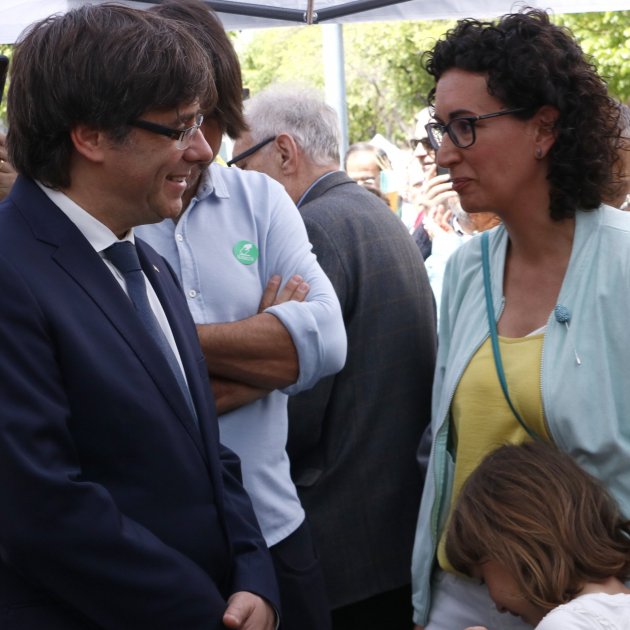A new summit of the Catalan pro-independence parties in Geneva. The exiled president, Carles Puigdemont, and the general secretary of the Catalan Republican Left (ERC), Marta Rovira, have presided over a meeting in the Swiss city of members of the parliamentary groups of Together for Catalonia (JxCAT) and ERC, as well as the third pro-independence party, the Popular Unity Candidature (CUP), and the key pro-independence civil groups, Catalan National Assembly (ANC) and Òmnium Cultural, as sources close to the meeting confirmed to ElNacional.cat. Current Catalan president Quim Torra was also present, a fact which, initially, sources declined to confirm.
The meeting, held on Friday, was shrouded in secrecy, and took place in response to the desire of different actors in the independence movement to make a common, structured response to the imminent opening of the new political term. And, above all, on the strategy they will follow with regard to the verdict in the trial of the 12 pro-independence leaders, which, apparently, will be announced by the Spanish Supreme Court in October.
This new meeting of pro-independence leaders in the Swiss city is the continuation of another summit held in the first week of July. On that occasion, those attending included Catalan president Quim Torra and vice president Pere Aragonès, who this time did not attend, according to sources consulted by this newspaper. Former CUP deputy, Anna Gabriel, who, like Marta Rovira lives in exile in Geneva, also took part in Friday's meeting, as did JxCAT Barcelona city councillor Elsa Artadi, according to the ACN agency.
Torra is to give a speech in Madrid on 5th September which is likely to be widely covered and will itself be the continuation of the discourse he gave at Prada de Conflent on August 23rd, when he called to maintain "democratic confrontation" with the Spanish state. The Catalan president will present his strategy in Madrid two days after the acting Spanish prime minister, Pedro Sánchez, details his offer to the other parties to revive his proposal to lead a new Spanish government after the failure in July, and without the possibility of a new Spanish general election being ruled out. Meanwhile, JxCat deputies will meet with Puigdemont and Torra on September 3rd and 4th in Brussels to define their own strategy.
And all this occurs shortly before the Diada, the Catalan National Day celebrated on September 11th, which presents the independence movement with a new challenge of mobilizing its supporters, after the recent depressed mood in the movement, affected by differences on the strategy to follow and an obvious lack of unity between JxCat, ERC, the CUP and the civil society groups. The issue of whether or not to call a new election to the Catalan parliament in response to the Supreme Court's verdict, the pros and cons of acting unilaterally, and the question of the degree of confrontation which should be maintained with the Spanish state, are the key axes on which different elements of the independence movement disagree, especially JxCat and ERC.
The Geneva meeting also coincides with a surge in new registrations of supporters of the Catalan exile body, the Council for the Republic, which is chaired by Puigdemont and based in his House of the Republic, in Waterloo. This Swiss gathering, known as the Geneva Table, operates in parallel with the Waterloo-based body. While the Council consists of individual members, both from parties such as JxCat, ERC and Poble Lliure - including the CUP - and on an independent basis, the Geneva Table is formed from the members of the pro-independence groups represented in the Catalan parliament.
